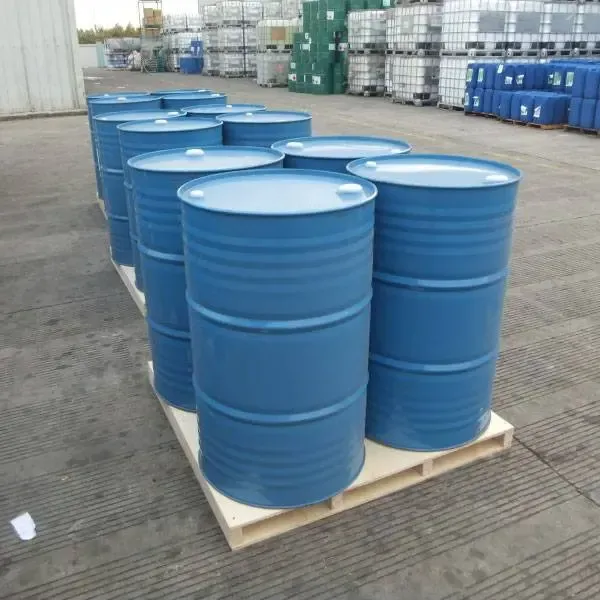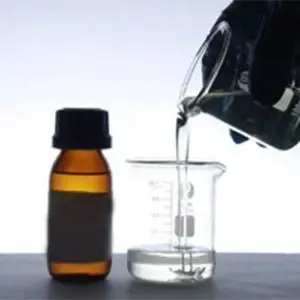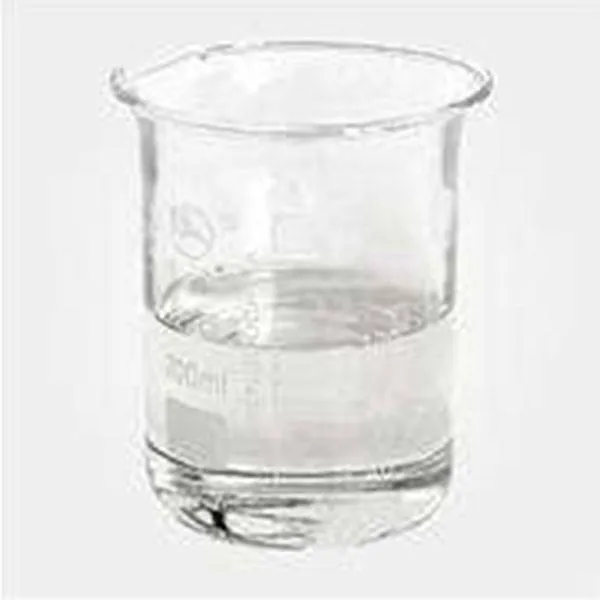N-Dimethylbenzylamine High Purity Supplier & Bulk Price

N,N-Dimethylbenzylamine (DMBA) is a vital catalyst and intermediate appreciated in chemical synthesis, polyurethane manufacturing, and as a key auxiliary agent in several industrial and specialty applications. N and its related compounds are increasingly sought after due to global emphasis on green chemistry, efficiency, and elevated purity requirements.
Industry Trends & Market Overview for N,N-Dimethylbenzylamine
- Global Market Size: The market for N reached over $500 million USD in 2023, with a CAGR expected at 6.7% from 2024 to 2029.
- Regional Demand: Asia-Pacific dominates demand (47%), followed by North America and Europe, propelled by rapid development in the polyurethane, coatings, and electronic resin sectors[1].
- Sustainability: With stringent environmental regulations (e.g. REACH, RoHS, ISO 14001), manufacturers focus on reducing VOCs, high purity technology, and lifecycle management.
- Innovations: Process improvements such as continuous flow synthesis, advanced distillation, and in-line NMR purity testing.
Technical Parameters of N,N-Dimethylbenzylamine
| Parameter | Specification | Industry Standard / Method |
|---|---|---|
| CAS No. | 103-83-3 | — |
| Purity | ≥ 99.0% | GC (Gas Chromatography) |
| Appearance | Colorless to pale yellow transparent liquid | Visual Test |
| Density (20°C) | 0.891–0.895 g/cm3 | ASTM D4052 |
| Boiling Point | 183–184°C | ISO 3405 |
| Moisture Content | ≤ 0.10% | Karl Fischer |
| Azo Compounds | Non-detectable | EN 14362-1 |
| Residual Amine Impurities | ≤ 0.5% | GC-MS |
| Flash Point (Closed Cup) | 68°C | ISO 2719 |
| Refractive Index (n20/D) | 1.5015–1.5025 | ISO 5661 |
All parameters comply with ISO 9001:2015 production controls and regular SGS third-party inspection for quality assurance.
Manufacturing Process Flow of N
1. Raw Material Preparation: Selection and inspection of benzyl chloride and dimethylamine under ISO 9001:2015 compliant standards.
2. Catalytic Methylation: Benzyl chloride and dimethylamine react in the presence of a phase-transfer catalyst at controlled pressure and temperature.
3. Separation/Purification: Crude product is extracted, washed, and primary impurities removed.
4. Distillation & QC: Vacuum fractionation separates high-purity N; GC and NMR tests conducted.
5. Finished Product: Packaged in UN-certified drums/IBCs per DOT and ADR standards.
2. Catalytic Methylation: Benzyl chloride and dimethylamine react in the presence of a phase-transfer catalyst at controlled pressure and temperature.
3. Separation/Purification: Crude product is extracted, washed, and primary impurities removed.
4. Distillation & QC: Vacuum fractionation separates high-purity N; GC and NMR tests conducted.
5. Finished Product: Packaged in UN-certified drums/IBCs per DOT and ADR standards.
See 3D process demonstration video: N,N-Dimethylbenzylamine manufacturing video

Material & Production Process
- Material: Benzyl chloride (>99.5%) and dimethylamine (anhydrous, industrial grade).
- Manufacturing Method:
- Liquid Catalytic Alkylation: Optimum selectivity for mono-methylation.
- Continuous Vacuum Distillation: Ensures batch-to-batch purity and removes residual alkylamines.
- On-line GC & NMR Inspection: Quality maintained in real time, lot traceable.
- International Certifications: ISO 9001:2015, REACH registered, SGS certified shipments.
- Testing: Each lot verified by titration, GC-MS, and water content testing.
OEM/ODM Customization Options
- Custom Purity (99.0–99.9%, ultra-high: 99.99%)
- Packaging: Steel drums (180kg), 20L pails, 1MT IBCs, ISO tank, with FDA food-grade liner*
- Private Labeling, custom barcode & tracking per shipment
- Delivery: FOB Shanghai, CIF worldwide, under ADR/UN 2735 regulations
- Value Added: Blends with other tertiary amines, stabilizer premixes for client process optimization
- Compliance: All custom products pass ISO and ANSI sampling standards.
Product Specification & Manufacturer Comparison
| Parameter | Sincere Chemicals (N,N-Dimethylbenzylamine) | Company A | Company B |
|---|---|---|---|
| Purity | ≥99.5% (typical) | 98.5–99.0% | ≥99.0% |
| Moisture Content | ≤0.08% | ≤0.12% | ≤0.10% |
| Stabilizer Option | Yes (customized) | No | Yes (limited) |
| ISO/SGS Certification | ISO 9001, SGS, REACH | ISO 9001 | — |
| Delivery Time* | 5–10 days (stock) / 12–20 days (custom) | 15–25 days | UP TO 30 days |
| Min. Order Qty | 1 drum (180kg) | 4 drums (720kg) | 2 drums (360kg) |
| Industry Focus | PU, epoxy, electronics, coatings | Resin, pigment | Resin, adhesive |
*Faster global delivery with strategic wharehouse in Asia-Europe.
Technical Trends Visualization

Application Scenarios & Case Studies: N,N-Dimethylbenzylamine Advantages
- Polyurethane (PU) Systems: Functions as a tertiary amine catalyst in flexible/rigid PU foams. Promotes fast gel, optimal cure speed, and increases productivity by 10–15% vs alternatives (see reference).
- Laminating & Epoxy Resins: Acts as accelerator for fast curing, improved bonding and mechanical profile. Outperforms DMEA, DMIPA in end-use strength.
- Paints, Adhesives, Ink: Ensures superior flow, excellent anti-yellowing. Low residual odor—critical for electronics and high-demand coatings.
- Pharmaceutical Intermediates & Agrochemicals: Used in synthesis of antihistamines, vitamins, and crop-protectants. Compliant with FDA and USP grade expectations.
- Typical Industries: Petrochemical, metallurgy, water treatment, construction, electronics, chemical synthesis.
- Environmental Performance: High selectivity and ultra-low impurity profile reduces post-processing effluent burden by >20% (as per Elsevier research).
Case Study: Large multinational PU manufacturer (Europe, 2022): Transitioned to high-purity N as a flexible foam catalyst, achieving 15% cycle time reduction, consistent color/foam stability, and 25% decrease in catalyst consumption vs DMEA-based systems. Operator feedback: "No corrosive odor, easier handling, robust compliance with OEKO-TEX and REACH".
Quality Control, Testing & Certification
- Batch Testing: GC, NMR, and IR scan for all production lots
- Certifications: ISO 9001:2015, SGS, REACH registration, FDA 21 CFR 175.300 for food contact
- Sampling: Per ANSI/ASQC Z1.4 statistical standards
- Recordkeeping: Traceable batch codes, retain samples for 2 years
- Guarantee: 3-year shelf-life in UN-certified drums. Warranty documentation available.
- Support: COA/COQ, MSDS, SDS, and technical advisory within 24 hours worldwide.
Delivery, Warranty & Customer Support
- Lead Time: Stock products: 5–10 days; Custom orders: 12–20 days after confirmation
- Shipment: ADR/IMDG/UN-compliant worldwide delivery, all documentation handled
- Warranty: Full coverage on material, specification and shelf-life — up to three years
- Support: Technical, regulatory and logistics assistance by PhD-level specialists
- After-sales: 24/7 response for claims, repeat orders, technical troubleshooting
FAQ: Professional FAQ on N,N-Dimethylbenzylamine
1. What is the molecular structure and classification of N,N-Dimethylbenzylamine?
N,N-Dimethylbenzylamine is a tertiary aromatic amine (C9H13N), featuring a benzyl group attached to a nitrogen atom substituted with two methyl groups. This provides enhanced nucleophilicity versus primary or secondary amines.
2. What purity and impurity profiles are typical?
Standard product purity exceeds 99.0%, with moisture content ≤0.1%, negligible secondary/primary amine content, and ≤0.5% amine impurities as analyzed by GC-MS (per ISO 17025).
3. Which packaging types are available for safe transit and storage?
UN-certified steel drums (180kg NET), 1MT IBCs, food-grade 20L drums (for pharma use), and ISO tanks for bulk. All with tamper-evident seals and resistance to amine permeability.
4. How does N compare to DMEA or DMIPA in polyurethane catalysis?
Higher catalytic activity, lower volatility, and cleaner foam profile (less VOC) than DMEA/DMIPA. Offers better storage stability and reduced emissions during processing.
5. What installation or technical standards apply to handling N,N-Dimethylbenzylamine?
Storage per ANSI B265 (chemical storage), ADR/IMDG codes for transportation, and operator PPE per OSHA 1910.1200 for worker safety.
6. Which analytical methods are used for quality verification?
GC-FID, NMR, Karl Fischer titration (for moisture), IR, and EN 14362-1 azo/dye impurity scan ensure highest compliance.
7. Is N,N-Dimethylbenzylamine compliant with environmental and product regulations?
Yes, meets REACH Annex XVII, RoHS, California Prop 65, and registered under EU and US chemical control acts.
Citations & Authoritative References
Post time: Jul . 29, 2025 11:20


















